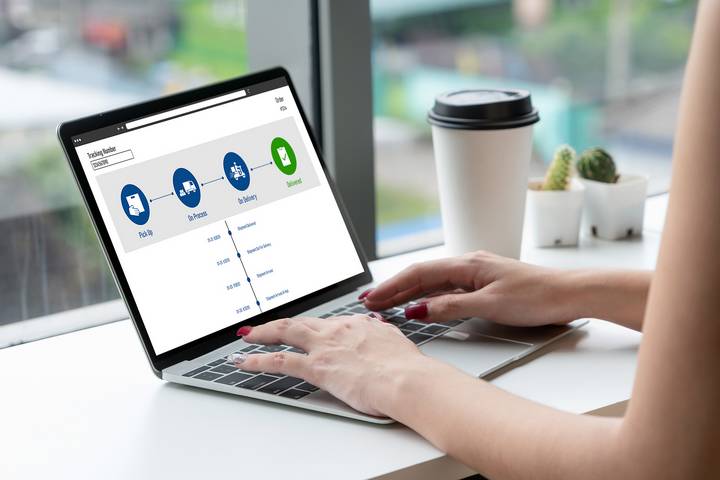
Whether you’re new to being a business owner or a seasoned entrepreneur aiming to grow, becoming an online retailer can significantly impact your success. Turn your passion and dedication into a successful online business by implementing strategies and embracing an entrepreneurial mindset.
Successful online retailers require dedication, a solid strategy, and a commitment to providing exceptional customer experiences. By following the best practices, you are on your way to running a successful online store. Remember to stay true to your niche, continuously learn and adapt, and always prioritize your customers’ needs.
Learn how to become an online retailer for the first time:
1. Find Your Niche

Finding your niche as a new online retailer is the first step toward success. The goal is to identify a specific category or industry where you can stand out. Start by exploring your interests, passions, and areas of expertise.
Passion and knowledge in your chosen niche will set your online store apart. Your passion will shine through in curating your products and engaging with your target audience, creating an authentic and unique brand experience. You position yourself for long-term growth and customer loyalty by finding and owning your niche.
2. E-commerce Fulfillment

Once you’ve done the hard work of developing and marketing your products, the next step is getting them into the waiting hands of your customers. Using e-commerce fulfillment services for your online store can significantly streamline your operations and enhance customer satisfaction.
Ecommerce fulfillment services handle the entire fulfillment process, from inventory management to packing and shipping. Outsourcing these tasks lets you focus on fundamental business activities like product development and marketing.
E-commerce fulfillment services also offer benefits like faster order processing, fast and reliable shipping, and access to advanced tracking systems. They often have warehouses strategically located to reach customers quickly and cost-effectively. These services can also provide scalable solutions, allowing your business to handle growth or sudden surges in demand without compromising efficiency.
3. Conduct Market Research

After finding your niche for your online business, dive into some market research. Start by identifying your target demographic and understanding their preferences and needs. Study your competitors to analyze their offerings, pricing, and marketing strategies.
Look for trends and opportunities within your niche and assess if your products will be in demand. This research will help you with your business strategy and determine how to best position your brand in the marketplace.
4. Choose an E-commerce Platform

The e-commerce platform you choose can be an integral part of your success. Ideally, you want a user-friendly platform with secure payment gateways and customizable design options. Some popular choices include Shopify, Wix, and WooCommerce, but do your research to determine which aligns best with your business needs and budget.
You’ll also want to evaluate each platform’s ability to integrate with third-party tools and its flexibility to adapt as your business grows.
5. Set Up Your Online Store

After you’ve chosen the e-commerce platform that best suits your business needs, it’s time to create a professional online store. Tailor the design to reflect your brand and create an intuitive user experience. Provide concise and compelling product descriptions and use high-quality images to showcase them.
Boost your visibility in online searches by implementing search engine optimization techniques. Use analytics tools to track your website’s traffic and performance and make improvements based on your findings. And don’t forget to prioritize customer service by offering multiple support channels like email and chat. Launching your online store with a solid foundation sets the stage for growth and success.
6. Develop a Marketing Strategy

Developing a comprehensive marketing strategy is essential to successfully promote your online store. Your marketing approach will be critical in attracting customers and driving sales. One effective strategy is content marketing, which involves creating valuable blog posts, articles, or videos related to your products or industry. Try engaging your existing customer base and attracting new subscribers through email marketing campaigns.
You can boost brand awareness by collaborating with well-known influencers or industry experts. And to reach an even broader audience, consider investing in paid advertising like a search engine or display ads. You can fine-tune your strategies by continuously monitoring and analyzing your marketing efforts to achieve optimal results.
7. Social Media

Social media is such a powerful tool. Start by identifying the platforms potential customers are most likely using, and then create engaging and visually appealing content to showcase your products or services.
Build an active presence by posting regularly and interacting with your audience through comments, direct messages, and live chats. Social media paid advertising can help you reach more people and drive additional traffic to your online store. Collaborate with influencers or run contests and giveaways to generate buzz about your company and products.
Don’t forget to monitor your analytics to track engagement, reach, and conversion rates, and adjust your social media strategy accordingly to maximize its impact on the success of your new online store.












